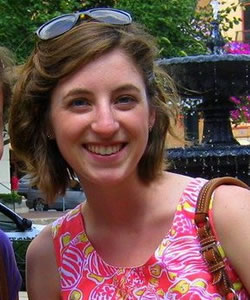
As the clamor from the wild celebrations roared on out in the streets following the 8:00 p.m. official announcement of victory for François Hollande, candidate for the Partie Socialiste (PS) in the 2012 French presidential elections, I heard the lock to the front door of my apartment turn. On the heels of some clattering— I can only imagine that my host father accidentally overturned the lamp by the front door—and some rather emphatic swearing, my host parents made their way back to their bedroom, where they quickly shut off the lights. The two had been at a friend’s home to watch the election coverage, and, as the swearing and their speedy return home suggest, they were less than happy with the results.
I was expecting their disappointment from the moment I heard the results myself over the crackly radio my host father leaves running at all times, even as he sleeps. It has been my experience that the French, unlike many Americans who take a far more decorous approach to “appropriate” dinner conversations, tend to plunge right into heated political talks whenever and often wherever the mood strikes, and my host family has proven no exception.
I had been surprised initially; the second question my host father asked—after, of course, the requisite “Did you have a nice flight?” following my flight from Kansas City to Paris—was whether I was a Republican or a Democrat. I have gotten used to the offhand approach both my host father and host mother take to discussing politics, though, and, after spending the last few months with them as the 2012 presidential race loomed closer and closer, I have gotten to know a fair amount about their political beliefs, given both the frequency and frankness with which they discuss them.
It has been interesting, too, for me to discuss certain similarities I have noticed between the French presidential race and the American race currently taking form. My host father, somewhat of an enthusiast of all things American, follows the news in the United States closely, and when a recent article discussing the role religion and religious issues might play in the upcoming American elections, I thought he might be interested.
At the same time, though, I was curious to hear his thoughts about the role that religion, often considered a crucial element in American elections, might play in France, where laïcité—roughly, a kind of secularism—restricts the overt display of religious symbols and markers, and religious practice is often a strictly private affair, practiced primarily in the home. In following the elections here, I had seen relatively little in the way of overt scrutiny of either the religious affiliations of candidates or proposed social legislation, but I knew from experience around the dinner table that religion did come into play, even if it was largely within the private sphere.
My host parents, who are both practicing Catholics, confirmed that their religious beliefs did, in fact, have a certain influence in their political leanings, but it was not as expansive a role as I initially thought, given their heavy involvement in their parish. They felt that some of Hollande’s proposed legislative changes did conflict with their beliefs, but, as they told me, their economic concerns trumped social or faith-based ones. For my host mother, ultimately, it was the economy and not religion that would drive her vote, although in the present case, as she added pointedly, both went the same way.
Their voting preferences, it turns out, are hardly unusual among French Catholics. According to polls released immediately following the announcement of the results, approximately 79 percent of practicing Catholics voted for Nicolas Sarkozy, the incumbent president and candidate representing the Union Pour un Mouvement Populaire (UMP). Similar religious voting blocs exist for other groups, including practicing Muslims, who, in addition to constituting the largest religious group in the electorate following Catholics (57.2 percent and 5 percent, respectively according to a 2012 Cevipof poll) voted largely for Hollande. According to Claude Dargent, an associated research at the Centre de Recherché Politiques de Sciences Po, furthermore, these traditional orientations are often relatively unaffected by minor political variations from year, tending instead to remain marked characteristics of each group.
The next day, after they had the chance to cool down a bit, I decided to ask my host family what they thought about Dargent’s assessment of the variability of voting preferences from year to year, especially given the fixed nature of certain values that tended to orient the voting bloc’s vote in the first place. They agreed, noting that pending their evaluation of Hollande’s term and the future survival prospects of France as a nation—they have quite the sense of humor—they planned to vote for similar values in the future.
About the Author
Opens in a new window
